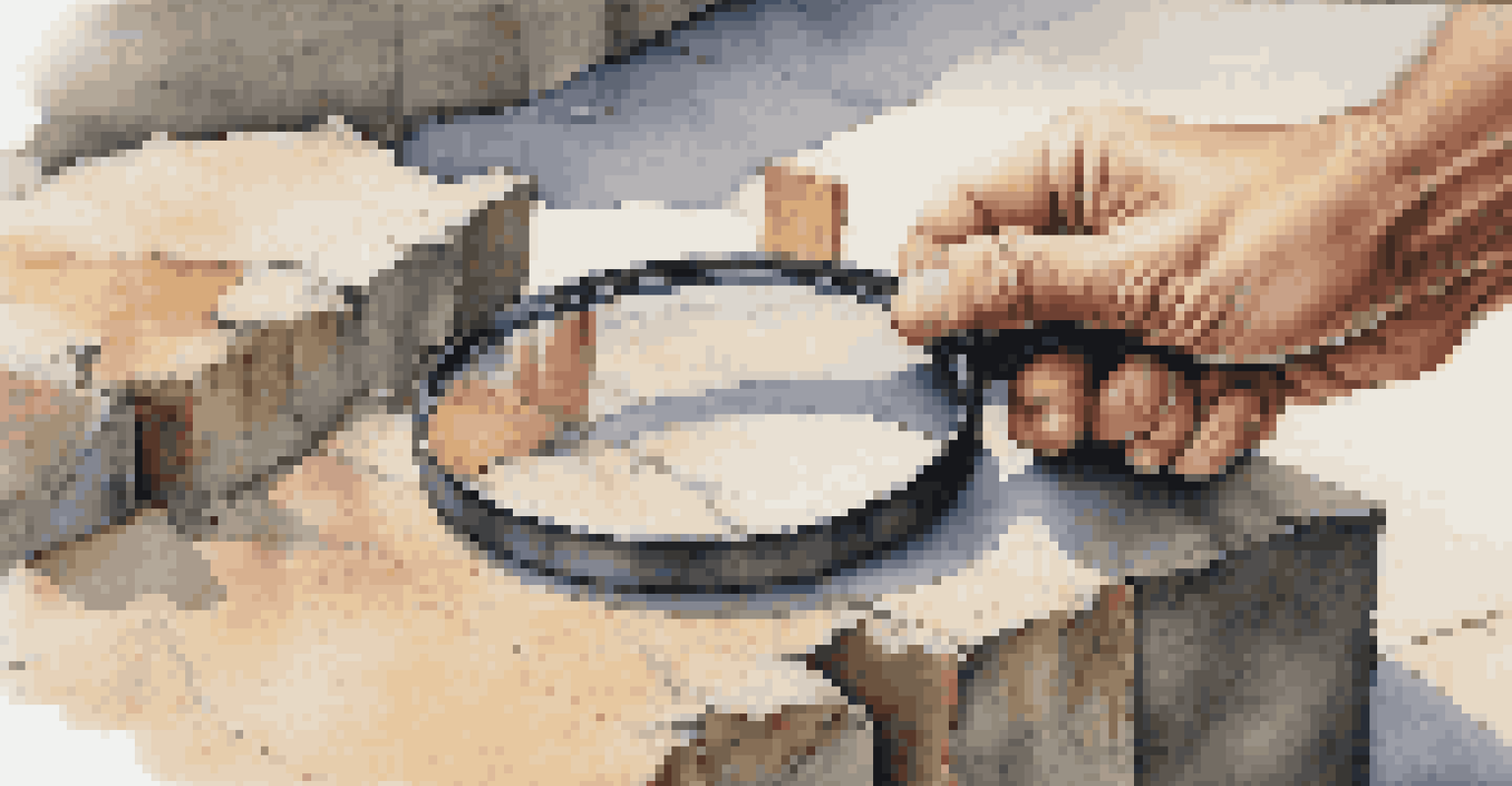Home Inspections: Ensuring Quality and Safety in Renovations

Understanding the Importance of Home Inspections
Home inspections are a crucial step in the renovation process, ensuring that your project is built on a solid foundation—literally and figuratively. They help identify potential issues that could lead to costly repairs down the line, allowing homeowners to make informed decisions. Think of it as a health check-up for your home, where potential problems can be spotted early to prevent bigger headaches later.
An ounce of prevention is worth a pound of cure.
When embarking on a renovation journey, many homeowners are excited about the aesthetic transformations, but it's easy to overlook underlying structural concerns. An inspection can reveal hidden problems like outdated wiring or plumbing issues that could compromise the safety and integrity of your home. By addressing these concerns upfront, you can save yourself from unexpected surprises during or after the renovation.
Moreover, securing a home inspection can enhance the overall value of your property. Potential buyers often feel more at ease knowing that a professional has evaluated the home, making your renovated space more appealing in the future. In short, home inspections are not just about fixing problems—they're about ensuring quality and peace of mind.
Common Issues Found During Home Inspections
During a home inspection, various issues can be uncovered, ranging from minor inconveniences to major red flags. Some of the most common problems include roof leaks, faulty electrical systems, and inadequate insulation. For instance, a small leak in the roof might seem harmless initially, but over time, it can lead to extensive water damage and mold growth, which are not only costly to repair but also pose health risks.

Another frequently encountered issue is plumbing problems. Leaky pipes or outdated fixtures can lead to water wastage and increased utility bills. When renovating, addressing these plumbing concerns can save homeowners from future disruptions and ensure the efficiency of their new space.
Home Inspections Prevent Costly Repairs
Conducting a home inspection helps identify potential structural issues early, saving homeowners from unexpected repair costs later.
Furthermore, issues related to pest infestations can also arise during inspections. Termites or rodents can wreak havoc on a structure, leading to significant damage if left unchecked. By identifying these pests early, homeowners can take the necessary steps to protect their investment and create a safe living environment.
The Home Inspection Process Explained
The home inspection process typically begins with hiring a qualified inspector who will thoroughly assess the property's condition. This includes examining the roof, foundation, plumbing, electrical systems, and even the exterior landscape. Think of the inspector as a detective, meticulously searching for clues that reveal the true state of your home.
The best time to repair the roof is when the sun is shining.
After the inspection, the inspector provides a detailed report outlining their findings. This document serves as a roadmap for homeowners, highlighting areas that need immediate attention and suggesting further evaluations if necessary. It's essential to review this report carefully, as it can influence your renovation plans and budget.
Additionally, many inspectors welcome questions during the walkthrough, allowing homeowners to gain insights into the property's condition and maintenance needs. This interactive aspect of the inspection process can empower homeowners, providing them with knowledge that can guide their renovation decisions.
Choosing the Right Home Inspector
Selecting a qualified home inspector is vital to ensure a thorough evaluation of your property. Look for professionals who are certified and have good reviews from previous clients. A well-respected inspector will not only bring expertise to the table but also provide a sense of trust that your home is in good hands.
Ask for recommendations from friends, family, or real estate agents who have had positive experiences with inspectors in your area. It's also wise to interview potential inspectors to gauge their experience and knowledge about specific issues that pertain to your home, especially if you live in an older property.
Inspector's Findings Guide Renovations
Integrating the findings from a home inspection into your renovation plan ensures that critical issues are addressed first, enhancing safety and value.
Finally, don’t hesitate to request a sample report from potential inspectors. This can give you an idea of their reporting style and the depth of detail you can expect. Choosing the right inspector can make all the difference in identifying issues before they become costly problems.
Integrating Inspection Findings into Your Renovation Plan
Once you have the inspection report in hand, it's time to integrate those findings into your renovation plan. Prioritize addressing any major issues highlighted in the report, as these could impact the safety and functionality of your home. For example, if the inspector flags electrical issues, it’s wise to address them before you start on aesthetic upgrades like new kitchen cabinets.
Moreover, understanding the inspector's recommendations can help you make informed choices about where to allocate your renovation budget. Instead of diving into cosmetic changes, you might decide to invest in structural integrity first, ensuring a solid foundation for your future enhancements.
This approach not only enhances the safety and quality of your renovations but also adds value to your home. When potential buyers see that you've taken care of critical issues, they may be willing to pay a premium for a property that’s in good condition.
The Benefits of Pre-Purchase Inspections
Pre-purchase inspections serve as a safeguard for prospective homebuyers, providing insights into the property's condition before making a financial commitment. By having an inspection done before closing the deal, buyers can negotiate repairs or adjustments in the sale price based on the inspector’s findings. This can save them from the financial burden of unexpected repairs after moving in.
Additionally, pre-purchase inspections can reveal hidden defects that may not be apparent during a casual walkthrough. For instance, issues like foundation cracks or outdated electrical systems can be overlooked, leading to significant expenses later on. Knowing these details allows buyers to make informed decisions about their purchase.
Pre-Purchase Inspections Offer Security
Pre-purchase inspections allow buyers to negotiate repairs or price adjustments, protecting them from future financial burdens.
In essence, a pre-purchase inspection can be a game changer in the home buying process, offering peace of mind and protecting your investment. It's a proactive step that can prevent buyer's remorse and ensure that you're stepping into a safe and sound home.
Final Thoughts on Home Inspections and Renovations
In conclusion, home inspections are a vital component of any renovation journey. They not only identify potential issues but also provide homeowners with the knowledge needed to make informed decisions. By prioritizing inspections, you’re effectively investing in the safety and longevity of your home.
As you plan your renovations, remember that an inspector's findings can guide your choices and help you allocate your budget wisely. Embracing this proactive approach can lead to a smoother renovation experience and ultimately result in a home that meets your expectations.

So, before you embark on your next renovation project, consider scheduling a home inspection. It’s a small step that can lead to significant benefits, ensuring that your home is a safe, quality space for years to come.